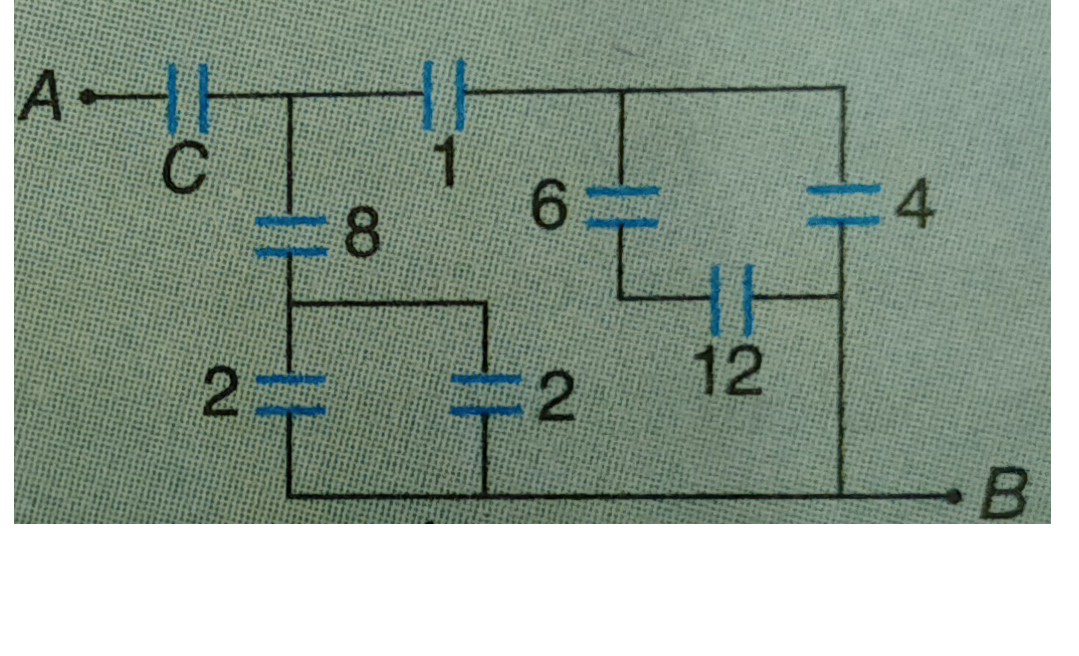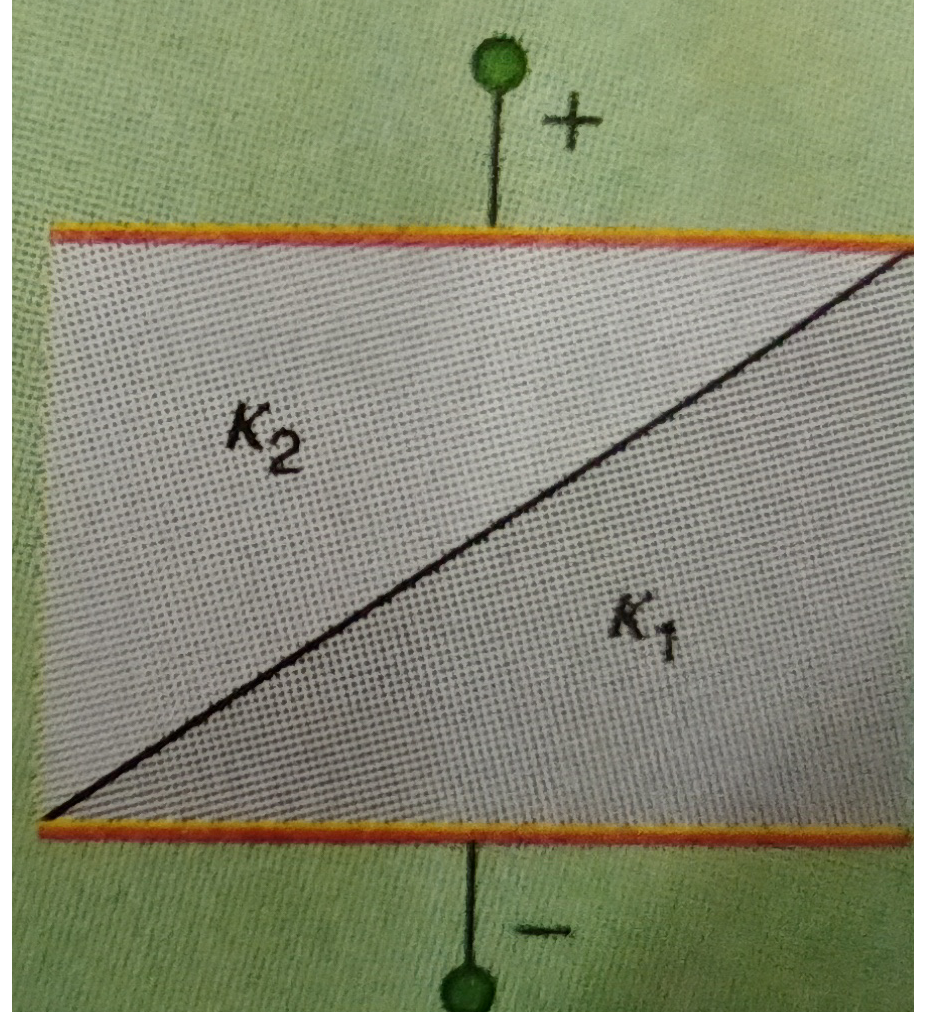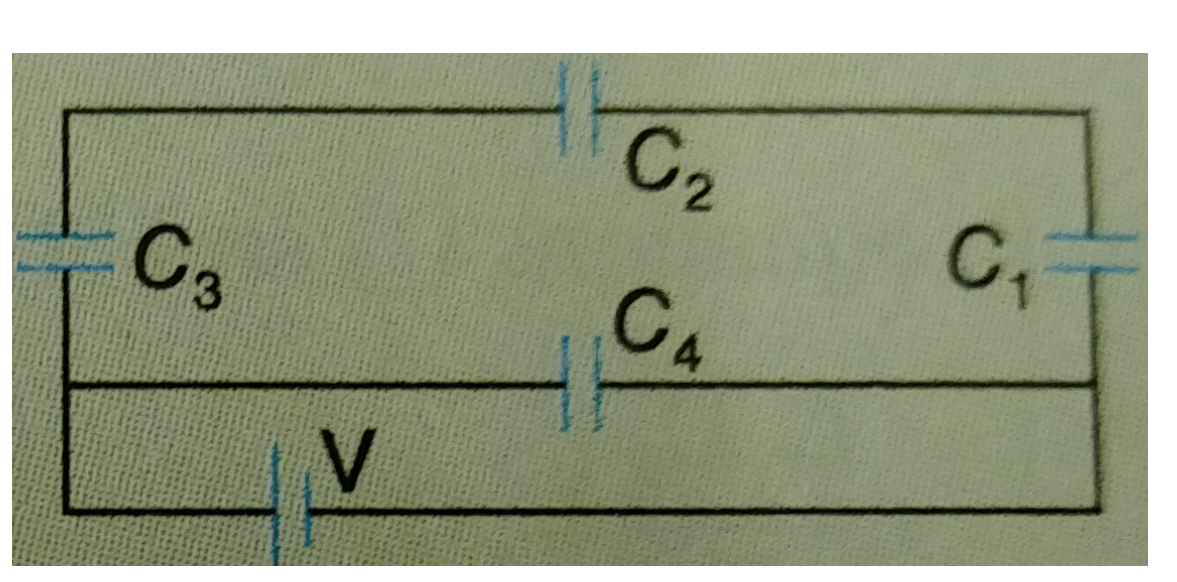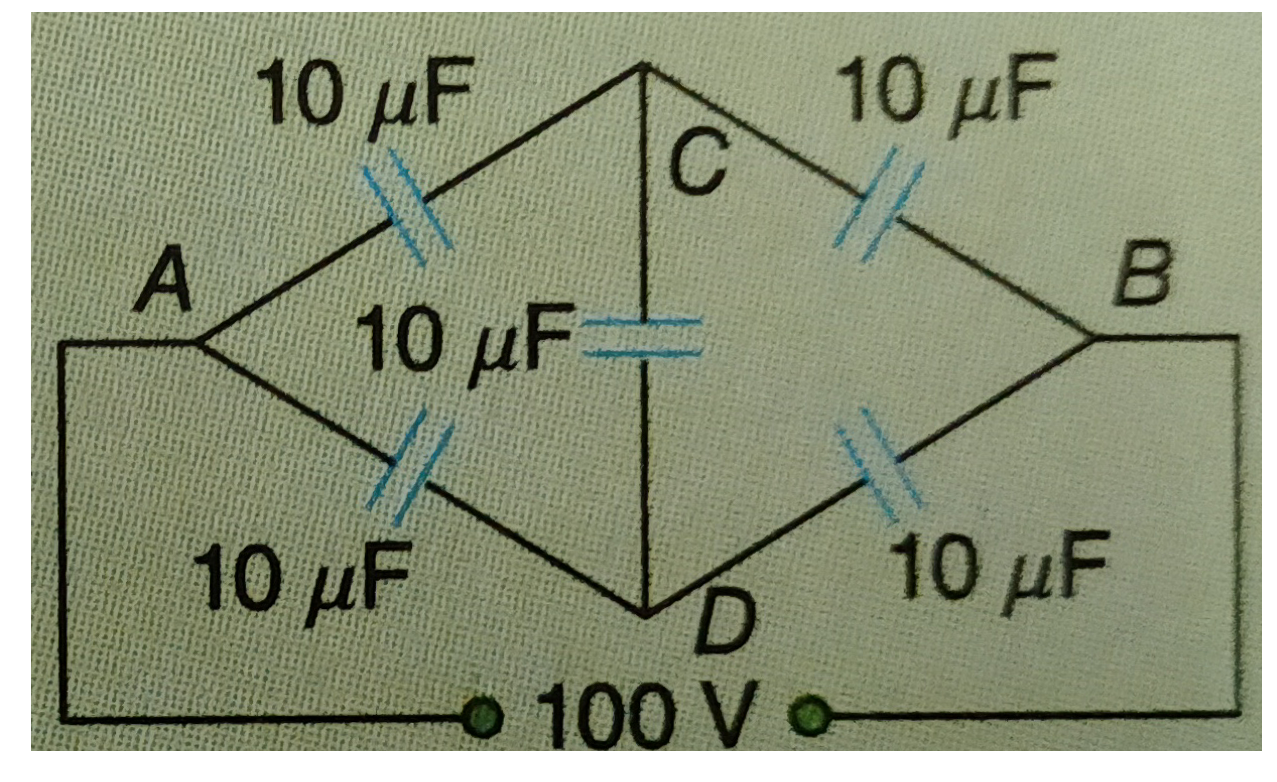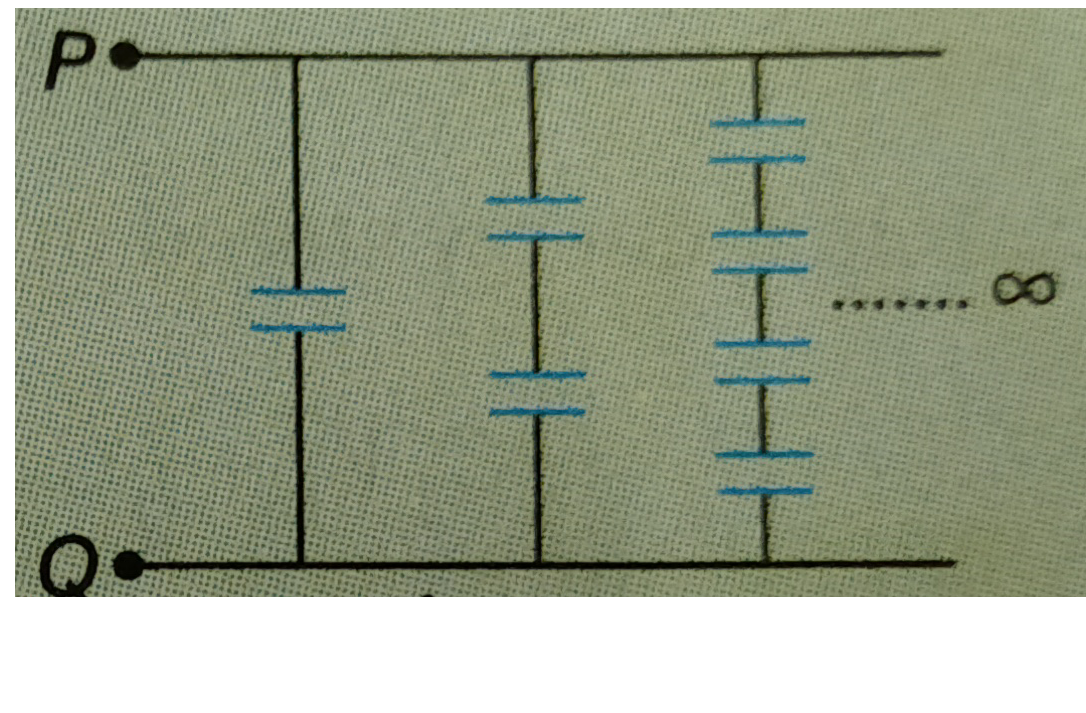EXAMPLES from CHHAYA PHYSICS (BENGALI ENGLISH) CAPACITANCE AND CAPACITOR for Class 12
| Class 12 | PHYSICS |
| Chapter | CAPACITANCE AND CAPACITOR |
| CHHAYA PHYSICS (BENGALI ENGLISH) | EXAMPLES |
| Medium | English |
| Academic Year | 2023-2024 |
Question 2
The potential of a conductor having 40 esu of capacitance is raised by 10 esu. What is the charge on the conductor ? How much charge is to be given to another conductor, having capacitance three times that of the first conductor, to raise its potential three times that of the first one?View SolutionQuestion 8
A conductor of capacity 4 units, charged with 100 units of positive charge is connected to another conductor of capacity 2 units, charged with 20 units of negative charge. What is the change in potential of each conductor ? What will be the charges of each of them after connection?View SolutionQuestion 12
One thousand similar electrified raindrops merge into a single one so that their total charge remains unchanged. Find the change in the total electrostatic energy of the drops, assuming that all the drops are spherical and the small drops were initially at large distances from one another.View SolutionQuestion 22
The area of each plate of a parallel plate capacitor is 22 cm2 and the plates are kept separated by a paraffin paper of thickness 1mm. Specific inductive capacity of paraffin paper is 2. What are the capacitance of the capacitor and the surface density of charge under a potential difference of 330V?View SolutionQuestion 24
The conducting plates of a parallel plate capacitor are separated by 2 cm from each other. A dielectric slab (k =5) of thickness 1 cm is inserted between the two plates. The distance between the plates is now so changed that the capacitance of the capacitor remains the same. What will be the new distance between the plates?View SolutionQuestion 26
Surface area of each plate of a parallel plate capacitor is 50 cm2. They are separated by 2mm in air. It is connected with a 100V power supply. Now a dielectric ( k =5) is inserted between its two plates. What will happen
If the voltage source is absent during this insertion?View SolutionQuestion 36
A condenser is composed of 21 circular plates placed one after the other. The diameter of each plate is 10 cm. The consecutive plates are separated by 0.2 mm thick mica sheets of dielectric constant 6. If the alternate circular plates are connected, calculate the capacitance of the condenser in μF.View SolutionQuestion 37
A condenser is composed of 200 circular tin plates placed one after the other. The consecutive plates are separated by 0.5 mm thick mica sheets of dielectric constant 6. If the alternate tin plates are connected and the capacitance of the entire condenser is 0.4μF, what is the radius of each tin plate?View SolutionQuestion 43
Three plates of the same size form a system of capacitors. Each plate has an area α. The intermediate distances between the plates are d1 and d2, respectively. The space between the first two plates is occupied by a dielectric of constant k1 and that between the second and third plates by a dielectric of constant k2. Calculate the capacitance of the system.View SolutionQuestion 44
The capacitance of a parallel plate air capacitor is 9pF. The separation between the plates is d. The intermidate space is filled up by two dielectric media. The widths of them are d3 and 2d3, and their dielectric constants are 3 and 6, respectively. Find the capacitance of the parallel plate capacitor?View SolutionQuestion 50
In Fig. 4.30, two identical parallel plate air capacitors are connected to a battery. At first the key S is closed and then it is opend. The space between the two capacitors are now filled up with a dielectric, having dielectric constant 3. Determine the ratio of the energy stored in the two capacitors before and after insertion of the dielectric?
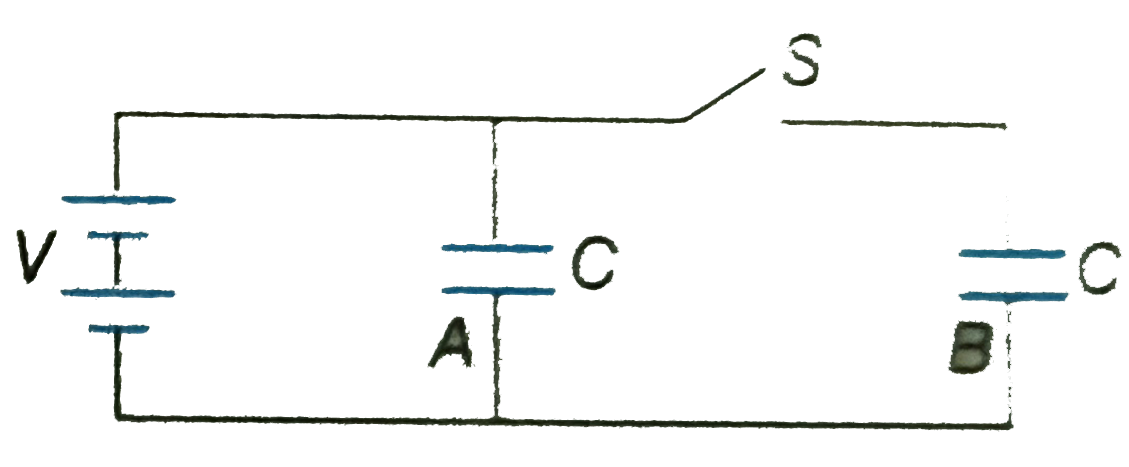 View Solution
View SolutionQuestion 52
Three capacitors A,B,C are connected in such a way that their equivalent capacitance is equal to the capacitance of B. The capacitances of A and B are 10μF and 30μF respectively and C≠0. Determine three possible values of C and also show how the capacitors are to be connected in the three cases.View SolutionQuestion 53
Two parallel plate capacitors of capacitances C and 2C are connected in parallel and charged to a potential difference V. The battery is then disconnected and the region between the plates of the capacitor C is completely filled with a material of dielectric constant k. What is the potential difference across the capacitors now?View SolutionQuestion 54
A potential difference of 20V is applied across a parallel combination of three identical capacitors. If the total charge in the combination be 30C, determine the capacitance of each capacitor. What will be the charge in the series combination of these three capacitors with the same potential difference?View SolutionQuestion 61
Consider a parallel plate capacitor of plate separation d. Each plate has the length l and the width a. A dielectric slab of permittivily ∈ and thickness d, is partially inserted between the plates. The plates are kept at a constant potential differenc V. If x is the length of the dielectric slab within the plates, determine the force exerted on the slab.
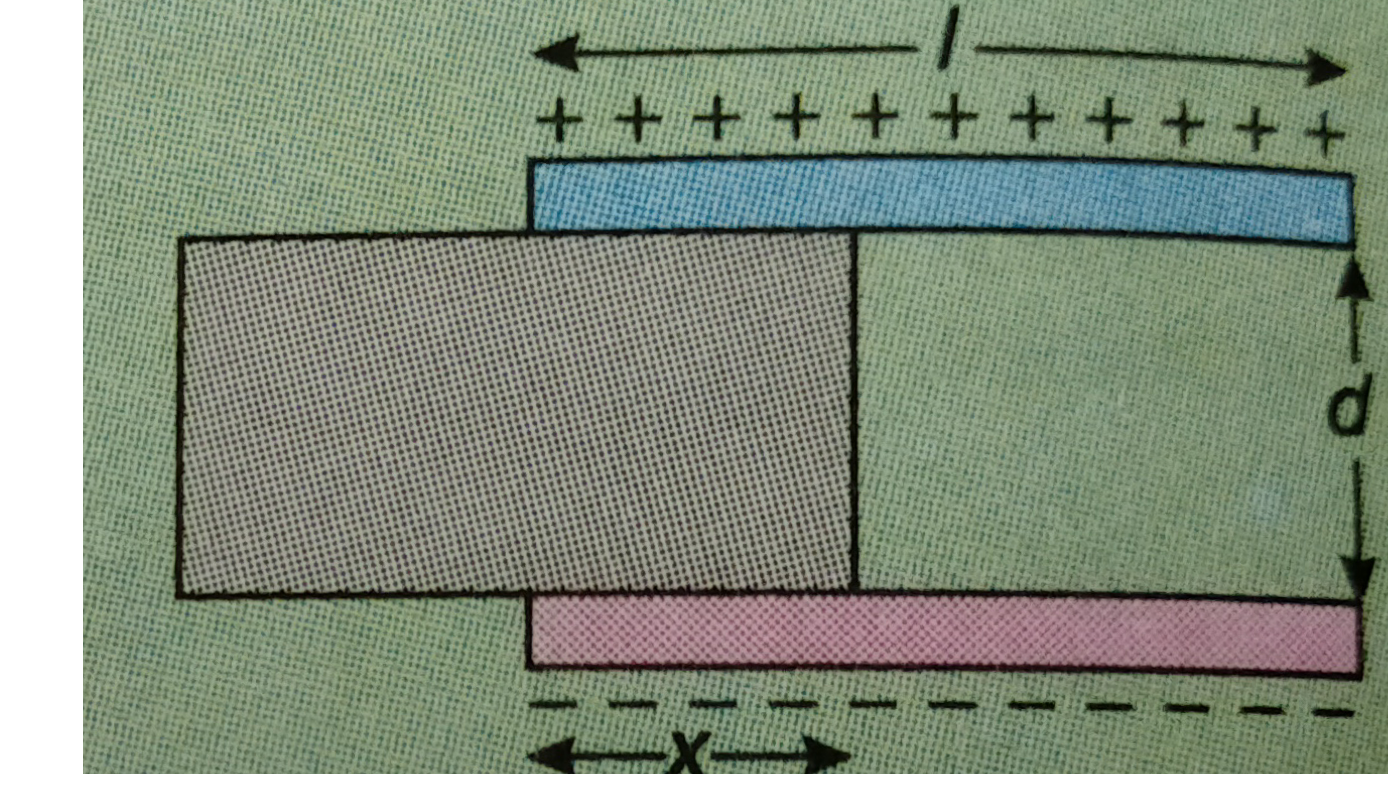 View Solution
View SolutionQuestion 62
A parallel plate capacitor of capacitances C is connected to a battery to charge it to a potential V. Similarly, another capacitor of capacitance 2C is charged to a potential 2V. Now the batteries are removed, and the two capacitors are connected in parallel by joining the positive plate to one with the negative plate of the other. Find out the final energy of the system.View SolutionQuestion 66
A 0.1F capacitor is charged by a 10V battery. After disconnecting the battery, this charged capacitor is connected with an uncharged capacitor. If the charge is equally shared between the two, then what will be the energy stored in the two capacitors? Compare this energy with the energy stored initially in the first capacitor.View Solution
All Exercises from CHHAYA PHYSICS (BENGALI ENGLISH) Class 12 PHYSICS CAPACITANCE AND CAPACITOR
- SECTION RELATED QUESTIONS
- HIGHER ORDER THINKING SKILL
- NCERT TEXTBOOK QUESTIONS
- NCERT EXEMPLAR QUESTIONS
- ALL QUESTIONS
- MULTIPLE CHOICE QUESTIONS
- VERY SHORT ANSWER TYPE QUESTIONS
- SHORT ANSWER TYPE QUESTIONS- I
- SHORT ANSWER TYPE QUESTIONS- II
- PROBLEM SET - I
- PROBLEM SET - II
- HOTS NUMERICAL PROBLEMS
- ASSERTION REASON TYPE
- MULTIPLE CORRECT ANSWER TYPE
- MATRIX MATCH TYPE
- COMPREHENSION TYPE
- INTGER ANSWER TYPE
- EXAMINATION ARCHIVE WITH SOLUTIONS WBCHSE
- EXAMINATION ARCHIVE WITH SOLUTIONS WBJEE
- EXAMINATION ARCHIVE WITH SOLUTIONS JEE MAIN
- EXAMINATION ARCHIVE WITH SOLUTIONS AIPMT
- EXAMINATION ARCHIVE WITH SOLUTIONS NEET
- CBSE SCANNER
- EXAMPLES
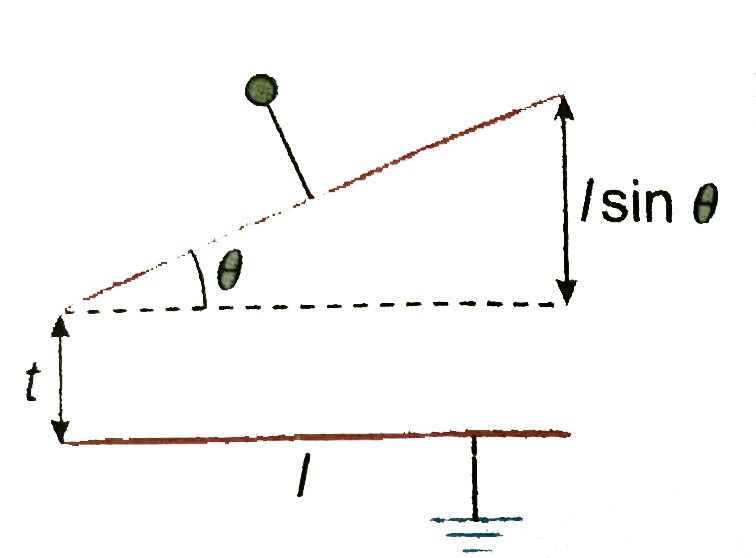
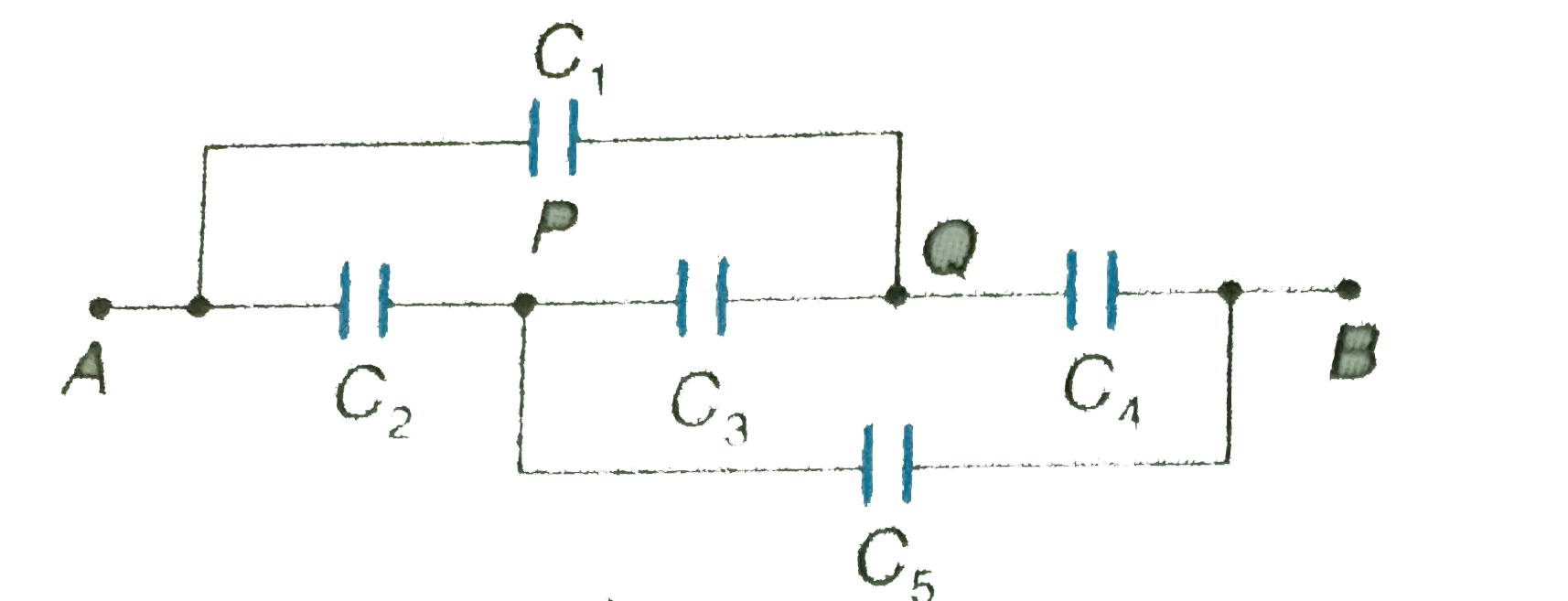

)</a><a href=) View Solution
View Solution